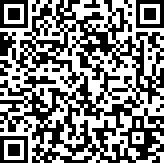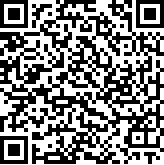| Table of Contents |  |
|
Original Article
| ||||||
| Efficacy of psychoeducation and problem-solving therapy on mathematics anxiety among selected secondary school students in Ilesa, Osun state, Nigeria | ||||||
| Samson Femi Agberotimi1, Abayomi Oladele Olaseni2, Olaitan Temitayo Oladele1 | ||||||
|
1MSc, LadokeAkintola University Teaching Hospital, Clinical Psychologist, Mental health, Ogbomoso, Oyo, Nigeria.
2MSc, Ronal Development Services, Clinical Psychologist, Clinical and Health Psychology, Abuja, FCT, Nigeria. | ||||||
| ||||||
|
[HTML Full Text]
[PDF Full Text]
[Print This Article]
[Similar article in Pumed] [Similar article in Google Scholar] |
| How to cite this article |
| Agberotimi SF, Olaseni AO, Oladele OT. Efficacy of psychoeducation and problem-solving therapy on mathematics anxiety among selected secondary school students in Ilesa, Osun state, Nigeria. Edorium J Psychol 2015;1:1–8. |
|
Abstract
|
|
Aims:
This study examined the efficacy of psychoeducation and problem-solving therapy on mathematics anxiety among secondary school students in Ilesa, Osun state, Nigeria. it was further aimed to investigate if male and female students differ on math anxiety before and after treatment.
Methods: A pre test, post test control group quasi-experimental design was used. 45 students comprising 16 (35.6%) male and 29 (64.4%) female whose ages ranged between 14 and 18 years (X = 15.91, S.D. = 1.07) participated in the study. Data were collected with a structured questionnaire. Analysis of covariance and independent sample t-test were used for statistical analysis. Results: Results revealed that treatment has a significant main effect on reduction of students' math anxiety (F (2, 38) = 28.98, p <0.05), gender does not significantly influence students' math anxiety (F (1, 38) =0.01, p > 0.05), treatment and gender do not interactively and significantly have effect on students' math anxiety (F (2, 38) = 0.51, p > .05). Conclusion: In conclusion, the two treatments conditions employed in this study were effective in treating math anxiety among secondary school students. | |
|
Keywords:
Mathematics anxiety, Problem-solving therapy, Psychoeducation
| |
|
[HTML Full Text]
[PDF Full Text]
|
|
Author Contributions:
Samson Femi Agberotimi – Conception and design, Acquisition of data, Analysis and interpretation of data, Drafting the article, Critical revision of the article, Final approval of the version to be published Abayomi Oladele Olaseni – Acquisition of data, Analysis and interpretation of data, Drafting the article, Critical revision of the article, Final approval of the version to be published Olaitan Temitayo Oladele – Acquisition of data, Drafting the article, Critical revision of the article, Final approval of the version to be published |
|
Guarantor of submission
The corresponding author is the guarantor of submission. |
|
Source of support
None |
|
Conflict of interest
Authors declare no conflict of interest. |
|
Copyright
© 2015 Samson Femi Agberotimi et al. This article is distributed under the terms of Creative Commons Attribution License which permits unrestricted use, distribution and reproduction in any medium provided the original author(s) and original publisher are properly credited. Please see the copyright policy on the journal website for more information. |
|
|
|
About The Authors
| |||
| |||
| |||
| |||






